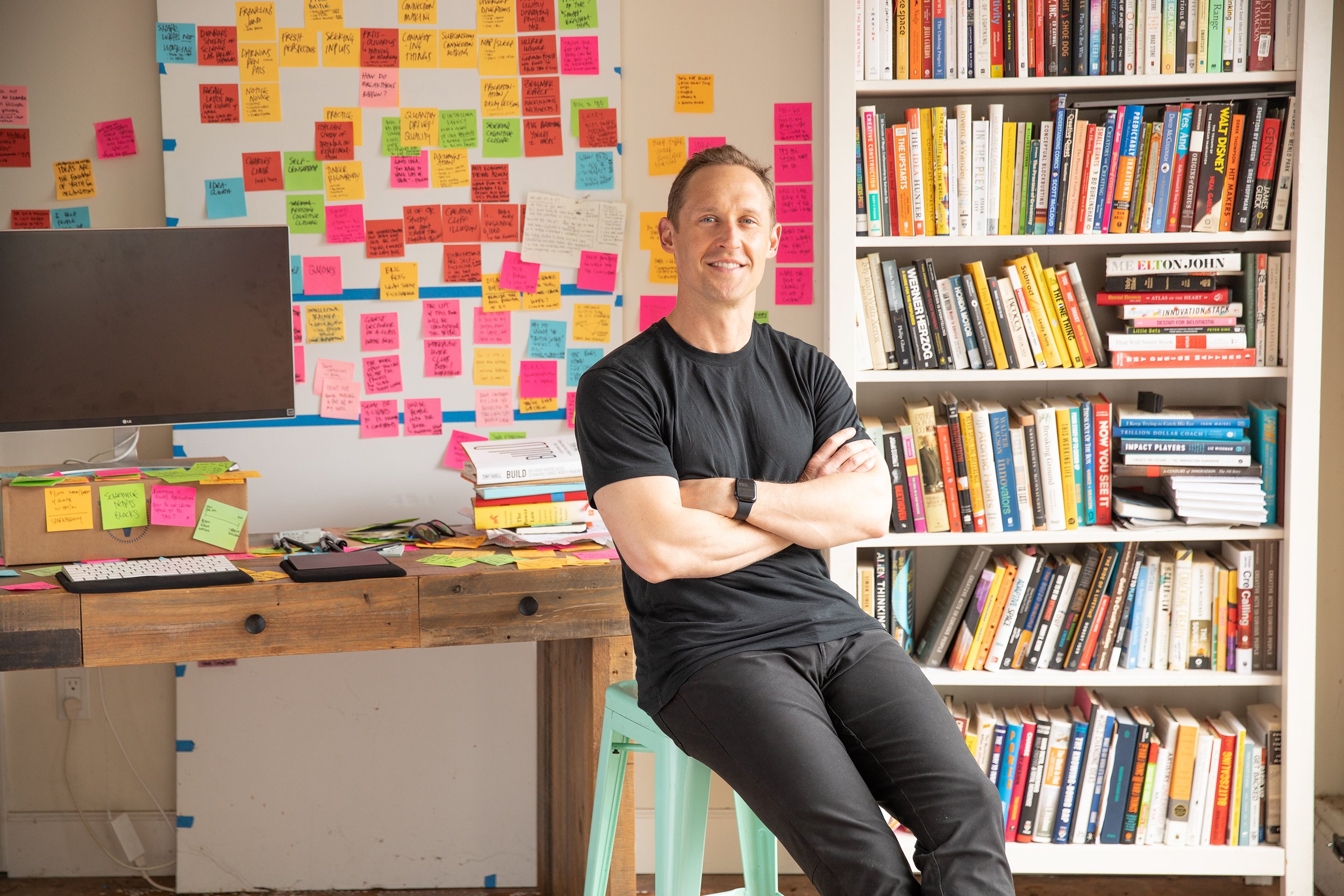
Methods of the Masters
A blog on the art & science of creative action.
Don’t Be Efficient
If you’re exploring, efficiency shouldn’t be your goal. Efficiency is for black belts; it is not for special operations. Exploration, by definition, is not efficient. As Paul Graham has famously said, “Do Things That Don’t Scale.” But if you’re not careful, the conditioning of the efficiency-oriented part of the organization will influence your objectives.
Don’t Clean Up
“Both Alexander Calder and Pablo Picasso filled their studios with a chaotic jumble of objects that ranged from fine art to salvaged junk. While some objects served purely as sources of inspiration, others were utilized as materials for their sculptures. Calder’s biographer observed: ‘The studio was a sacred dumping ground, from which new inventions emerged in unexpected ways.’”
Amplify the Urgency of New
Block time to commission and review experiments because routine responsibilities are constantly calling, and so the “new” has a tendency to get pushed to the fringes. It’s very easy to deprioritize an uncertain new thing in the light of a certain fire drill.
Count Funds Not Deployed
We spend so much time talking about the merits of new ideas, and the potential gains associated with them, that it’s easy to forget the impact of the conviction to NOT do something. But those are equally valuable insights! My feeling is that those points belong on the scoreboard every bit as much as the data that suggests “success.”
Question Your Assumptions
“Ever since then, I try to question things that seem, on the surface, to be obvious. Most things are, but occasionally when things don’t add up, there is usually an innocent looking, perfectly reasonable assumption that is wrong. And when you explore and poke around in corners where no one is looking, you’ll find the answers…”
Judge Experiments Before Ideas
Does your idea stink if you design an experimental offer and no one takes you up on it? It’s entirely possible. But before you judge the idea, you should judge the experiment. A classic pitfall that trips innovation teams up, that keeps them from learning about the quality of their ideas: poorly designed experiments.
Believe in Miracles
“Nothing stifles the spirit of discovery more effectively than the assumption that miracles have ceased. In other words, most people do not make discoveries because they do not expect to. Discovery has in it not only exacting precision but absurd aspiration; it weighs hairs and expect miracles…”
Inquiry-Driven Action
For years, we have been trying to get past the hexagon-based visualization of the design thinking process. Yes, the one we popularized almost 10 years ago. You might wonder why. “Isn’t that like Nike abandoning the swoosh? Like Coca-Cola jettisoning the classic red ribbon? Like a zebra trying to ditch its stripes?” Au contraire, mon frere…
Rally A Cohort
Whereas when one person learns in isolation — or even if many learn, but all in isolation — learning is largely linear, when many folks learn in parallel, and come back together to share, the learning curve is exponential…
Master the Approach
“We get a lot of yellow lights around here. Not really a red light, but not a clear green light either. We kinda don’t really know what to do… It takes a long time to get clarity.” Interviewing employees on behalf of a leader whom I advise — who wants to improve her ability to lead her team in exploring new ways to create value — this theme came up repeatedly.
Watch Yourself Think
“The underlying neural process of creativity is taking some things we already know and combining them in a new way… The brain is not capable of producing new material from scratch...” Knowing this fact dramatically impacts one’s creative output! Folks who receive neuroscience training outperform non-neuro-trained counterparts by almost 30%!
Solve the Right Problem
Design thinking has contributed two significant advances on conventional problem solving. Whereas most organizational problem solving boils down to “implement this solution to this problem,” design says, “Are we sure this is the right solution?” and proceeds to generate options before settling on the best solution. Perhaps more importantly, though, the other thing that makes a design driven approach to problem solving so special is that design says, “Are we sure this is the right problem?”…
Tempt Lightning
“Over time, I’ve moved from thinking, ‘There’s no such thing as a bad idea,’ into, ‘Well, yeah, there are some bad ideas.’ And now, I am firmly convinced there’s no such thing as a good idea. Every idea is a bad idea. No idea performs the way you expect once you collide it with reality. And the more I learn, the more I believe that it’s true…”
Look Out for Problems
I decided, ‘I’m going to be open - whatever problems I come across, I’m going to try to find a solution for them…” Two weeks later, Lorraine was off to the races with a fantastic start-up idea…
Allow Time for Incubation
To the “design doing” camp’s credit, it is entirely possible that the rebranding effort is only a matter of positioning, so that the uninitiated don’t get the wrong idea about what’s happening. But I think this belies a subtle but dangerous error: proselytes of “design doing” might be in danger of despising the need for deep thinking and prolonged consideration…
Test The Marshmallow
The thing that shocks most people is that MBA’s, who’ve likely visited the Eiffel Tower, and have a fair grasp on concepts like gravity — would be so categorically outperformed by children. Having run the activity scores of times, the simple way I’d describe the difference in mindset is, “Kindergartners know they don’t know the answer; MBA’s assume they do.” That simple mindset difference has profound implications for how teams approach the challenge…
Try Something New
We often tell folks who are embarking on learning experiences with us that they’re likely to be taken out of their comfort zone at some point, as we ask them to try on new behaviors and tools that can at times seem silly, unproductive, or unprofessional. Even the mention of the word, “Improv,” for example, can set folks on edge and cause “unexpected zoom malfunctions” among otherwise normally operational equipment.
Block Recovery Time
The GM of a large tech company told me how he thinks about showing up at work: “A lot of people go to meetings where they are present virtually, but not actually. I want to be where I am present actually, not just technically. So I proactively block what I call recovery time between meetings, so I can show up in peak form for the next meeting…”
Cooperate With Inspiration
Adam Grant is famously productive. He’s an exceptional teacher, and his creative output is consistent. What’s his secret? In a fabulous conversation with Tim Ferriss, he keys in on the idea of “attention management” — to say it differently, “respect for flow” — recognizing that sometimes, managing one’s attention is at odds with traditional time management…
Acknowledge the Unknown
My dear friend and mentor, Bernie Roth regaled me with a humbling story from the past. He’s a living legend and pioneer in the fields of mechatronics and kinematics. And yet, how difficult it is to predict the future…




















